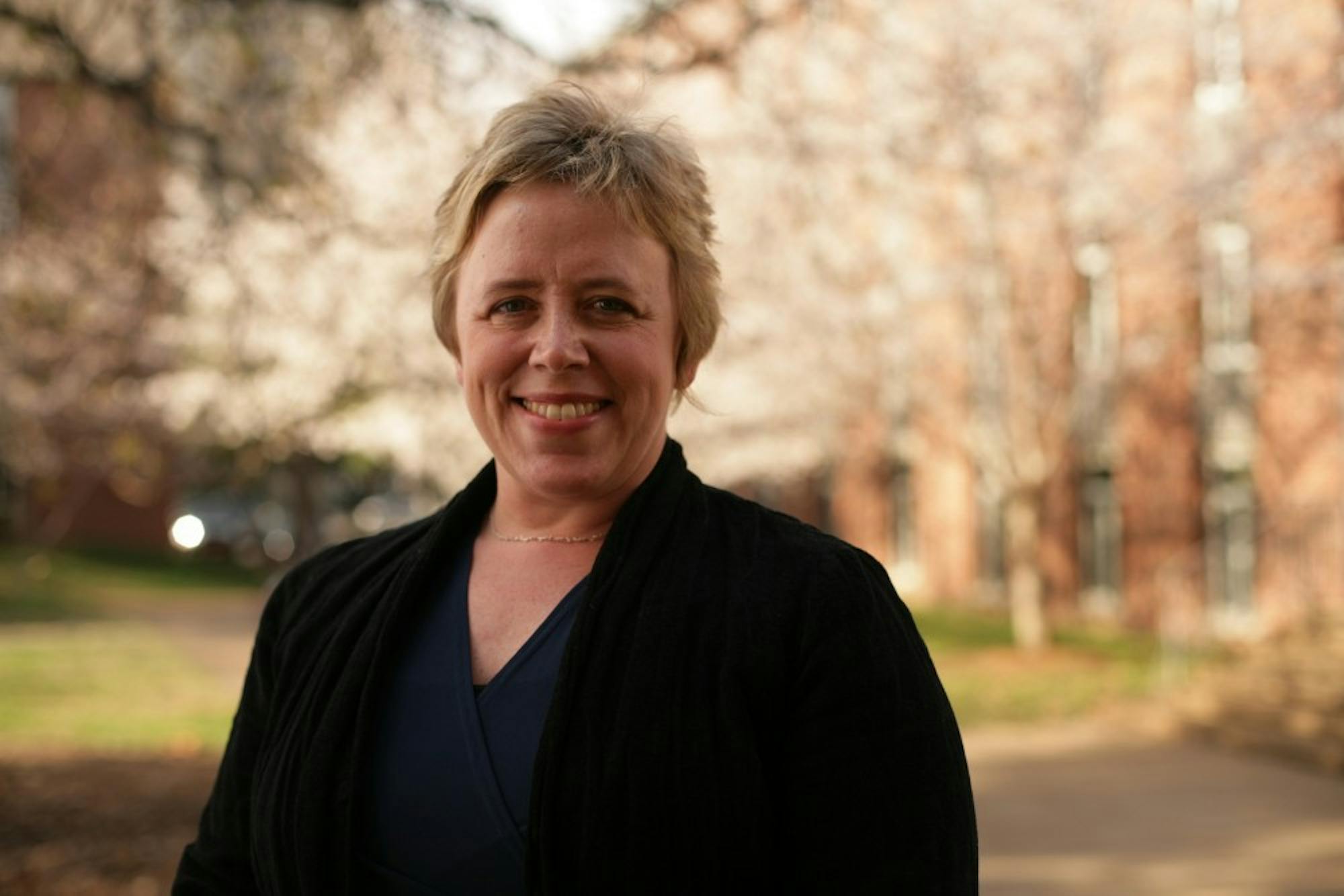Carolyn Dever, dean of the college of arts and sciences at Vanderbilt University, will serve as Dartmouth’s next provost beginning July 1, College President Phil Hanlon announced Thursday in an email to campus. Dever, an English professor known for her efforts in furthering diversity, has served in academic administrative roles for over a decade.
As provost, she will work with academic deans to support and advance scholarship across the College and its graduate schools and help oversee academic budgeting. Dever will also join the English department at the College, and she said she hopes to teach in the near future.
Bruce Duthu, head of the Provost search advisory committee, said that the committee welcomed Dever’s background in humanities.
“She came from a background that frankly we wanted to make sure was adequately and fairly addressed in terms of institutional priorities,” Duthu said. “We’ve got the liberal arts well positioned and well addressed at the senior level with her appointment.”
At Vanderbilt, Dever manages academic departments, research centers for the natural sciences, social sciences and the humanities, faculty and staff members and an annual budget of $180 million. After arriving at the university in 2000, she was appointed to her current position in 2008.
Her accomplishments include starting regional and national partnerships for humanities postdoctoral positions and facilitating partnerships with historically black colleges and universities.
Fostering diversity among students, faculty and staff is crucial throughout American higher education, Dever said, calling the effort an “uphill battle.”
“We need to build pipelines that draw the most talented students to Dartmouth from all ethnic and socioeconomic backgrounds,” she said. “We need to build pipelines that will draw the very, very best faculty and staff talent to the Dartmouth campus and will bring diversity of perspective and experience and academic quality at the same time.”
Duthu said that he was impressed by her participation in developing Vanderbilt‘s Living Learning Communities, in which students are housed together based on their academic interests.
“There’s a provost who cares deeply about these issues and has a record of accomplishment in terms of moving the needle, in terms of improving the quality of life and students,” Duthu said. “This is someone I think is going to be a very good partner with President Hanlon.”
Mark Schoenfield, Vanderbilt’s English department chair, added that Dever is terrific to work with in multiple capacities and that she always focuses on what’s best for her environment.
Dever said she plans to make a concerted effort to familiarize herself with “the history, the practices, the policies, the culture, the quirks of Dartmouth” during her first few months in Hanover.
Her selection as an external candidate represents a deviation from past provost selections, as eight of the past 10 Dartmouth provosts were promoted internally. These provosts, on average, served in the role for longer than those selected from outside the institution.
Duthu said the committee agreed from the beginning that they were open to both internal and external candidates. He said that the people with the best mix of skills and experience for the position happened to come from outside the College.
Women’s and gender studies professor Michael Bronski said that bringing people from outside could give the College fresh perspectives. Given Dever’s academic background, Bronski said he is interested to see what she brings to the provost job and hear what she thinks about the Greek system and sexual assault, as well as violence against women and the LGBT community.
“It’s not a secret that Dartmouth has a lot of problems with sexual assault and with violence,” he said. “Also with the Title IX lawsuit and questions of basic discrimination against women, after so many years of coeducation, to bring someone in here who actually talks about feminism in an explicit way is a bold move on President Hanlon’s part, and a move that calls for a great deal of respect for him.”
An external hire can bring in “new ideas, new blood and new visions,” he said.
Schoenfield said that despite Dever’s busy routine as a dean, she continued to teach courses and advised students working on independent studies and honor theses.
“When she taught freshman classes, it would always be guaranteed that we would have new English majors because they loved her classes so much,” Schoenfield said. “She really is interested in helping students think widely and deeply about both literature and how literature works in the world.”
Dever said she sees her imminent move to Hanover as “something of a homecoming,” since she is originally from the Boston area. Her husband Paul Young, who currently teaches English and film studies at Vanderbilt, will join Dartmouth’s film and media studies department.
“We’re looking forward to being a part of this community that we’ve already received such a warm welcome from and feel really embraced,” Dever said.
Dever was selected after a nearly eight-month search by executive search firm Isaacson, Miller and the College’s search advisory committee, led by Native American studies chair Duthu.
While Dever accepted a second five-year appointment for her current role at Vanderbilt last March, she said her selection as Dartmouth’s next provost involved the support and knowledge of her colleagues.
Martin Wybourne has held the role of interim provost since July 2012, when former provost Carol Folt began as interim College President.
Heather Szilagyi contributed reporting to this article.




